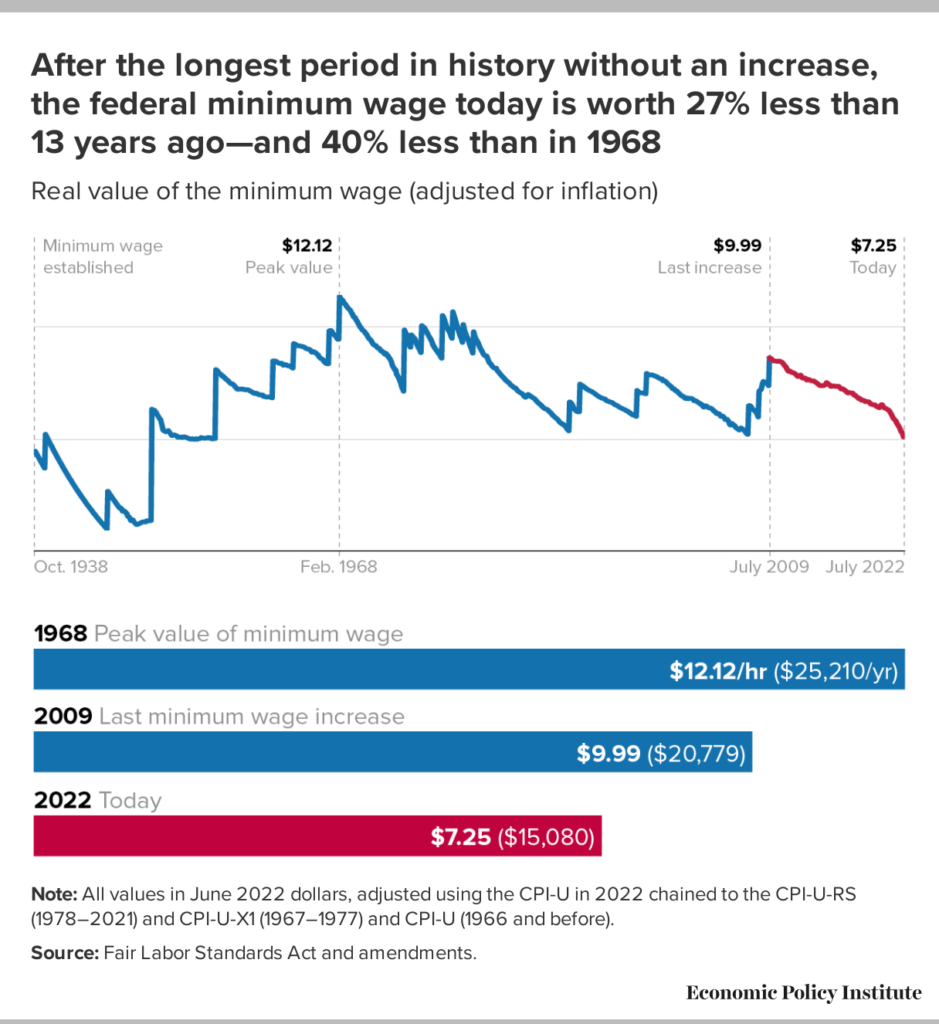This blog post is dedicated to the guy who told our canvassers that he opposes minimum wage because he’s “an economist.” To that guy we entreat: Get a real job.
Right now, MidMO DSA is part of a campaign to gather signatures for a $15/hr minimum wage ballot initiative along with other DSA chapters across the state and our coalition partners, Missouri Jobs with Justice. Our chapter has, in just three months, gathered over a thousand signatures in Columbia alone, so suffice to say that enthusiasm for the campaign has been amazing. However, every now and then we get a few individuals who decide to push back with a little bit of economic orthodoxy best summed up in this watermarked 2016-esque meme:

So let’s talk about this idea, and why it doesn’t carry water. The idea here is called “wage push inflation.” It’s the idea that in order to preserve profits after an increase in wages, employers must increase prices, thereby driving inflation. It’s a tidy idea that, like a lot of capitalism, works on paper but not in the real world.
Let’s get this out of the way first: as many other people have pointed out in response to this meme, prices have risen even though the federal minimum wage has remained $7.25 since 2009, making the federal minimum wage worth less than at any period since the mid-20th century.

But even if the wage had been raised, there isn’t actually evidence that prices would have risen. Historical studies have found no strong correlation between increased mininum wage and prices. In one national study conducted by the Upjohn Institute, examining state and city-level minimum wage increases across the country from 1978-2015, researchers found that prices rose just .36% for every 10% increase in minimum wage. In some cases, an increased wage actually brought prices down!
At a national level, when the minimum wage was increased in 1980, 1981, 1990, 1991, 1996, 1997, 2007, AND 2008, inflation actually remained stable or decreased each time.
At a state level, 30 states have raised their minimum wage beyond the federal minimum.There has not been a noticeable price increase for states that have raised wages versus those that have kept wages at the federal minimum. Moreover, states with higher minimum wage recovered faster and saw their economies grow faster following the COVID19 pandemic.
While myths against minimum wage increases persist on the midwit right, actual empirical evidence shows time and time again that raising the minimum wage helps both workers and the economy more broadly. We can achieve that here too. Join our campaign!
